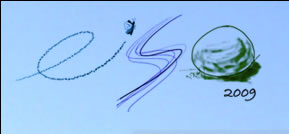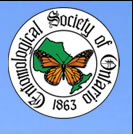Plenary Speakers
Plenary Session Only Offer for non members is available for $20.00, which includes the following plenary session, student Poster Competition and lunch. Does not include accommodations or admission to the banquet.
 Plenary Session – EARTH
Plenary Session – EARTH
"Tales from the Underworld: Litter Arthropods of the Great Lakes Forest"
This presentation will introduce the intriguing world of hexapods, arachnids, crustaceans and myriapods that make their homes among decaying leaves. The members of this complex community play a critical role in the annual recycling of nutrients and are essential for the well-being and sustainability of our forests. The biology of isopods, springtails, mites and millipedes (and other arthropods) will be illustrated using the library of macrophotographs collected as part of our ongoing inventory of the litter fauna in the Haliburton region. The impact of invasive species, harvesting practices and climate change on these key components of the forest ecosystem will be discussed with reference to our research program at the Frost Centre Institute. The presentation will also explore what these organisms can teach us about dealing with our own litter and waste management challenges.
Dr. Jonathan M. Schmidt
Associate Professor, Environmental Sciences, University of Guelph
Research Statement
This presentation will introduce the intriguing world of hexapods, arachnids, crustaceans and myriapods that make their homes among decaying leaves. The members of this complex community play a critical role in the annual recycling of nutrients and are essential for the well-being and sustainability of our forests. The biology of isopods, springtails, mites and millipedes (and other arthropods) will be illustrated using the library of macrophotographs collected as part of our ongoing inventory of the litter fauna in the Haliburton region. The impact of invasive species, harvesting practices and climate change on these key components of the forest ecosystem will be discussed with reference to our research program at the Frost Centre Institute. The presentation will also explore what these organisms can teach us about dealing with our own litter and waste management challenges.
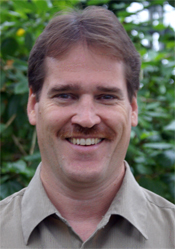 Plenary Session – WATER
Plenary Session – WATER
"From failed typologies to national biomonitoring programs: Aquatic invertebrates as indicators of their environment"
Aquatic insects have a long and interesting history of use as indicators of environmental quality. Sporadic references to the proliferation (or absence) of certain aquatic insect species in organically polluted aquatic systems date back to the late 19th century. Quantitative use of aquatic insects as indicators of environmental pollution emerged in the early part of the 20th century and relied heavily on the concept of relative pollution tolerance among individual species. From this individualistic approach emerged many of the organism-based water quality indices still in use today. The notion of tolerance has also been used to develop broad classification schemes for aquatic systems. In some cases, such as the lake typology schemes developed in the 1920s-1940s, these efforts were largely unsuccessful; however, integrative approaches that combine knowledge of spatiotemporal patterns with appropriate measurements of geological and chemical characteristics have yielded useful classification systems such as the River Continuum Concept. In recent decades regulatory and scientific focus has shifted from the less reliable concept of indicator organisms to that of indicator communities and groupings based on functional attributes (e.g., aquatic insect functional feeding groups). The indicator community approach has served as the basis for the most recent advances in biomonitoring including the development of the Reference Condition Approach, a multivariate technique which serves as the foundation of most modern day biomonitoring programs around the globe.
Dr. Paul K. Sibley
Associate Professor, Environmental Sciences, University of Guelph
Research Statement
Paul Sibley is an Associate Professor in Environmental Biology at the University of Guelph. Paul received his B.Sc. (Marine Biology; 1985) and M.Sc. (Environmental Biology 1989) from the University of Guelph and Ph.D. (Environmental Toxicology; 1994) from the University of Waterloo. Paul spent three years at the USEPA Mid-Continent Ecology Division where he coordinated a research program to develop and validate the application of the USEPAs sediment toxicity test protocols using freshwater invertebrates. Paul’s current research interests focus on issues of water quality including invertebrate and sediment toxicological assessments of novel/priority compounds (with emphasis on testing, methods development, and validation), the use of aquatic invertebrates as indicators of ecosystem health, assessment of ecosystem-level responses to contaminants using model aquatic ecosystems as a way of addressing lab-to-field extrapolation, development of risk assessment methodologies, and disturbance ecology. He currently teaches courses on the Biology of Aquatic Insects, Water Quality and Environmental Management, and Aquatic Ecosystems.
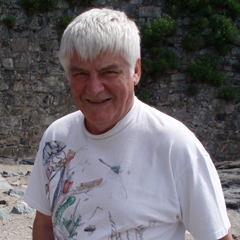 Banquet Speaker – WIND
Banquet Speaker – WIND
"The importance of environmental cues for insects that migrate in response to habitat deterioration."
The environmental cues used by migratory insects to assess habitat quality vary considerably and in keeping with the "Earth, Wind and Water" theme I will discuss how wind may effect the reception of, and response to, these cues. I will use examples of (i) mate location in the diecious aphid, Macrosiphum euphorbiae, (ii) location of preferred oviposition sites in the black army cutworm, Actebia fennica, (iii) overwintering site selection by the monarch butterfly, Danaeus plexippus.
Dr. Jeremy N. McNeil
Helen I Battle Visiting Professor, Department of Biology, University of Western Ontario
Research Statement
The main thrust of my research programme is to understand the reproductive strategies of insects that migrate in response to either predictable or unpredictable habitat change. The research is multidisciplinary in nature, looking at the behavioural and ecological aspects, as well as the underlying physiology mechanisms, of reproductive biology in species where mate location and mate choice are modulated by sex pheromones. I am also interested in different aspects of plant-insect and host-parasitoid interactions that involve chemical cues (infochemicals). I have generally chosen to work on pest species, or their natural enemies, as model research systems. This allows us to not only address basic questions in reproductive biology but also to generate data that may be used in the development of more environmentally rational approaches to insect control.
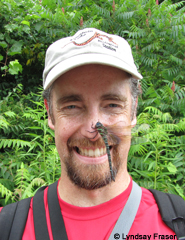 Nature Hike Guide
Nature Hike Guide
Chris Earley, B.Sc., M.Sc. Candidate
Interpretive Biologist & Education Coordinator, University of Guelph Arboretum
Biography
I'm the University of Guelph Arboretum's Interpretive Biologist and Education Coordinator. I'm a keen naturalist who loves sharing the natural world with others. I lead hikes and tours and offer workshops on a variety of topics including birds, dragonflies and damselflies, watercolours and sketching. Last year, I was fortunate to be the co-instructor (with Dr. Gard Otis) for a first-year interdisciplinary seminar course called Hawks and Humans. While I have written 5 books on birds (Warblers, Sparrows & Finches, Hawks & Owls and Waterfowl of the Great Lakes Region and Eastern North America and Birds A-Z, all with Firefly Books), I am very interested in insects and am a self-proclaimed Ode Geek. I am currently doing a part-time MSc on European Paper Wasps and how they might be competing with cavity-nesting birds for nest sites, a great project that combines birds and insects! This is in the Department of Environmental Biology at the University of Guelph and my advisor is Dr. Gard Otis. I am also a leader for Quest Nature Tours, a Canadian tour company that takes people all over the planet to discover nature. I have led tours to the Canadian Arctic, Greenland and southern Ontario. I currently lead a safari tour to Tanzania. My cottage is close to the Frost Centre and so I know how wonderful this area of Ontario is for observing nature. I hope you will join me for a local Nature Hike, Sunday, October 4th after the meeting concludes!
